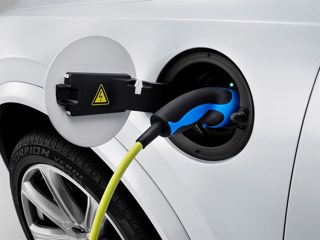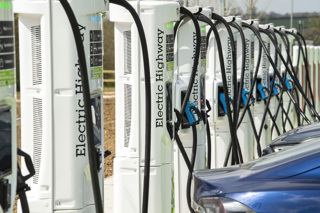Go Ultra Low is urging fleet decision-makers to use wholelife cost calculations to choose their company cars in order to secure financial savings.
Wholelife costs reflect all the projected, vehicle-specific costs associated with operating a car over its replacement cycle, including: vehicle funding inclusive of any VAT recovery and corporation tax relief, the cost of borrowing money, fuel, employer Class 1A National Insurance Contributions, service, maintenance and repair, Vehicle Excise Duty and insurance.
Industry experts suggest wholelife costs provide the best forward estimate of the real costs to an organisation in delivering business mileage, over a vehicle replacement cycle but the majority of public and private sector fleets fail to use them to select their fleet, according to Go Ultra Low, the campaign set up by the UK automotive industry and Government to highlight the benefits of ultra-low emission vehicles (ULEVS).
It argues that for electric vehicles, the higher list price when compared with petrol and diesel cars is more than offset by other benefits such as around 8p per mile in fuel savings, an estimated 20-30% saving in service, maintenance and repair costs and Vehicle Excise Duty and Class 1A National Insurance benefits.
In addition, company car benefit-in-kind tax rates have been set until 2020, which is when London introduces what is expected to be the world’s first Ultra Low Emission Zone.
Hetel Shah, head of Go Ultra Low, said: “The balance of costs and benefits are unique to electric vehicles and therefore it is important that Go Ultra Low promotes the advantages of ownership and the financial savings they can deliver on operating budgets to fleet decision makers.”
During a recent fleet workshop hosted by Go Ultra Low, Chris Chandler, principal consultant at Lex Autolease, commented: “The intention of legislators is to drive people into electric vehicles. If they are not currently on your fleet now then you need to be looking at how to change policies and get your fleet into a position to move into these vehicles over the next five years.
“Plug-in vehicle list prices are higher than for vehicles powered by internal combustion engines, but when you consider the wholelife costs there is a real benefit to the electric option.”
Lex Autolease is the UK’s largest vehicle leasing and fleet management company with a fleet of 300,000 vehicles including more than 1,500 ULEVs. Example wholelife costs data (see below) shows that companies can save more than £60 a month for every electric car chosen over a conventionally-powered equivalent. Over the typical four-year vehicle replacement cycle, this would amount to nearly £3,000 per company car – resulting in huge savings for organisations, according to fleet size.
|
Example wholelife cost data |
|||||
|
Model |
P11D |
MPG |
CO2 |
Monthly |
2015/16 |
|
BMW i3 hatch 5dr auto |
£30,925 |
N/A |
0 |
£37.50 |
£455.67 |
|
BMW 116d SE 5dr auto |
£23,740 |
78.5 |
96 |
£85.51 |
£468.11 |
|
BMW 118i SE 5dr auto |
£22,270 |
50.4 |
129 |
£125.99 |
£506.92 |
|
|
|
|
|
|
|
|
Nissan LEAF Acenta 5dr auto |
£28,535 |
N/A |
0 |
£37.50 |
£395.97 |
|
Ford Focus 1.5 TDCi 120 Zetec S auto |
£21,515 |
74.3 |
98 |
£90.34 |
£401.47 |
|
Ford Focus 1.5 EcoBoost Zetec S 5dr |
£21,315 |
51.4 |
127 |
£123.54 |
£457.19 |
|
|
|
|
|
|
|
|
Volkswagen E-Golf 5dr auto |
£31,114 |
N/A |
0 |
£37.50 |
£472.96 |
|
Volkswagen Golf 1.4 TSI Match 5dr DSG |
£22,030 |
56.5 |
116 |
£112.39 |
£485.06 |
|
Ford Focus 1.6 125 Zetec 5dr Powershift |
£20,170 |
44.8 |
146 |
£141.74 |
£487.57 |
All wholelife costs based on four years/60,000-mile with maintenance contracts. Fuel costs based on manufacturers’ official combined cycle mpg and UK average pump prices at April 2015. 3p per mile has been used as the ‘fuel’ cost for electric vehicles. All wholelife costs include plug-in grant where applicable.
Source: Lex Autolease



















Login to comment
Comments
No comments have been made yet.